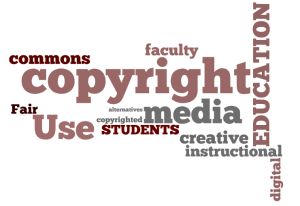INFORMATION SYSTEMS
Information
Systems (IS) are a strategic necessity and innovative systems that
are focused on identifying and improving the performance of key business drivers deliver a competitive advantage.
Coca-Cola Bottling Indonesia (CCBI) is a market leader
in innovative systems and is committed to the ongoing investment in appropriate technology that can enhance
value across the organization.
World class solutions require dedicated people and our commitment
to recruiting and training
the best mix of technical and analytical system managers, designers,
engineers, developers and implementers is the reason we will continue
to prosper. Our dedicated IS team is structured to be integrated
within our business activity functions to ensure solutions are integrated,
focused on priorities correctly and are delivering the desired results.
We are committed to user education. The solutions CCBI choose to deploy
are leading class business applications or infrastructures. To ensure
the most value can be gained form our investment our IS team are
also responsible for ensuring our end users are capable at transactional
processing and information dissemination.
The Indonesian business environment is developing quickly and to
ensure CCBI has a balanced approach to achieving growth we ensure
we invest in research and development. Given our relationship with
the wider Coca-Cola system we are able to tap into the large 'knowledge
bank' of innovative solutions deployed worldwide and can adopt these
into our environment if required.
Coca-Cola Bottling Indonesia produces core brands such as
Coca-Cola, Sprite, Fanta, and Frestea in factories spread
all over Indonesia. To keep quality beverages produced in
accordance with the standards, we apply a strict production
process which is recognized internationally.
Giving the codes on each product is the most important part
of the overall process. With the codes that we keep our
customers get the drinks in the best taste.
Each code indicates specific descriptions about the product.
There is a code that shows information about the date of manufacture.
There is a more complex code, consisting of letters and numbers indicating day, month,
shift, and the factory where the drink is made. Anything else that does not appear on
the packaging because the ink used can only be read by special technology
All this shows our commitment to ensure that technology,
human resources and materials we use, all aimed to satisfy our
customers and our consumers.
PEOPLE DEVELOPMENT
People development has been one of the central focuses of our management
in order to prepare a competent, dynamic and dedicated work force.
Our goal is to satisfy more than 200 million consumers through servicing,
with excellence, around 400,000 customers throughout Indonesia.
We realize that in order to capture all opportunities,
provide superior service to our customers and face challenging competitive
environment, our teams must have the appropriate knowledge, skills and
the right attitude.
With the long history of Coca-Cola in Indonesia,
whilst we continue to recruit young people with the potential to
fill key roles, we also continue to provide training and develop
people to ensure that our organization capability meets the business
demand, and that our people are capable of delivering the expacted
results.
A dedicated team for people development has been
installed to improve functional-technical skills, as well as the
managerial and leadership skills, of our key employees. This function
has been supported and certified by a number of international training
and development resources. They include, among others, The Coca-Cola
Company, Coca-Cola Amatil and some
other international institutions.
A group of facilitators is recruited both from
within and from outside with strong business acumen, hands-on experiences
in the related fields and, more importantly, with 'educational-at-heart'.



